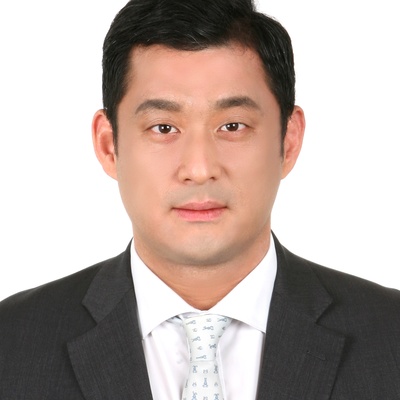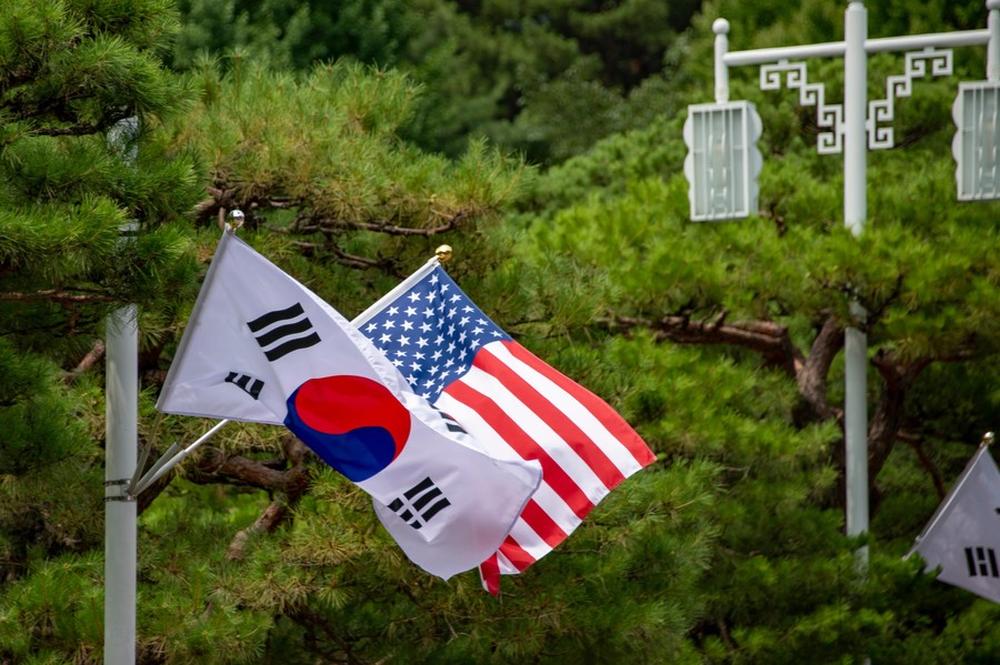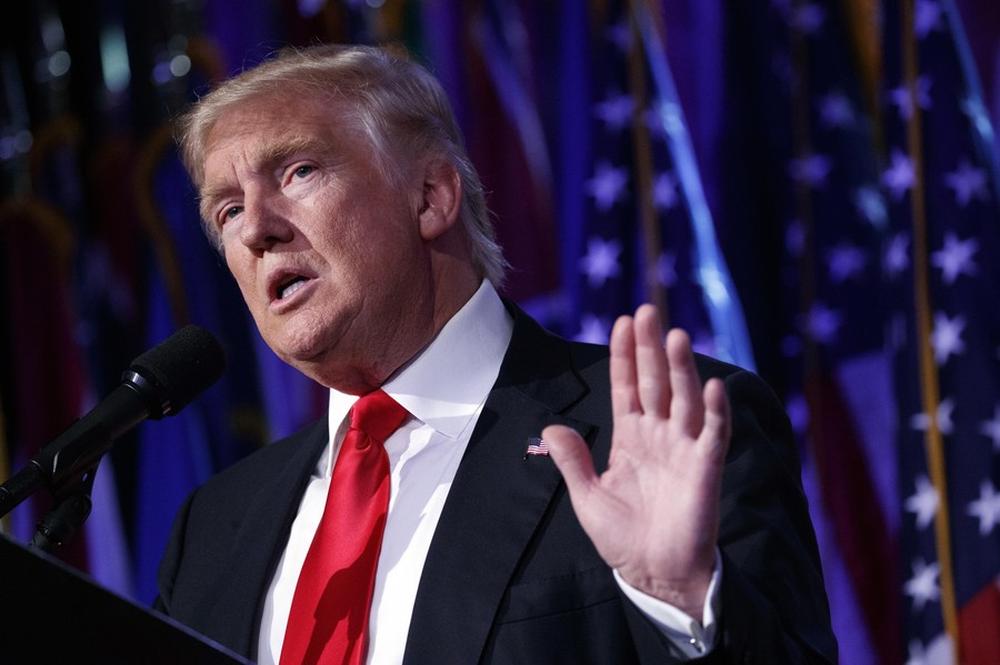
- #Japan
- #Multilateral Relations
- #US Foreign Policy

▶ Trump and Trilateral Cooperation: The Trump administration’s approach to ROK-US-Japan cooperation will likely depend on his strategic priorities, potentially emphasizing institutionalization and alignment with an "America First" Indo-Pacific Strategy.
▶ Challenges Ahead: Diverging national objectives, Trump's skepticism of multilateralism, and viewing trilateral efforts as a Biden legacy may hinder progress.
▶ Opportunities for Leadership: Strengthened institutional frameworks and proactive leadership by ROK, including establishing a trilateral secretariat, could sustain and expand cooperation.
The 2024 Presidential Election ended with a clear win for Donald Trump. Against all odds, Trump secured victories in all 7 swing states, including the traditionally blue-wall states like Pennsylvania and Michigan. While major pollsters, such as The Economist, predicted a 56% win for Kamala Harris, betting sites like Polymarket and BetOnline reflected greater confidence in a Trump victory. Many argue that the world will be different after January 20, 2025. International relations scholars, in particular, are evaluating the network of nations under a potential Trump administration 2.0. Yet, will the world truly change? Only time will tell.
The purpose of this essay is to examine trilateral cooperation among the Republic of Korea (ROK), the United States (US), and Japan in the upcoming Trump administration. The Camp David Summit in August 2023 marked a pivotal moment for trilateral security cooperation, with the three nations making significant strides in advancing their collective agenda. In this new era, it is essential to understand the nature and role of trilateral cooperation under Trump’s leadership. This essay will explore Trump’s perception of trilateral cooperation, the challenges it may face, and the opportunities it could present.
Perception
To understand President-elect Trump’s perception of trilateral cooperation, we must consider the following points:
First, Trump’s foreign policy behavior, including his stance on trilateral cooperation, will likely depend on his strategic priorities. Whether trilateral cooperation is emphasized in his foreign policy agenda remains uncertain. According to an exit poll conducted by CNN after the election, voters were primarily interested in economic and border issues rather than concerns about Russia or China.
Second, Trump may perceive trilateral cooperation as his achievement. During his first administration, he emphasized the importance of trilateral efforts. He may view the continuation of such cooperation under the Biden administration as a validation of his earlier initiatives. A Trump 2.0 administration might aim to institutionalize these efforts further, aligning them with the "America First" approach.
Third, Trump’s perception of trilateral cooperation will likely align with his Indo-Pacific Strategy. In this context, trilateral cooperation may serve as a tool for deterring adversaries in the Indo-Pacific region. However, Trump’s approach could differ from Biden’s, who has been fostering a lattice-like allied framework. Whether Trump would continue this trend or adopt a more transactional approach remains to be seen.
Challenges
Several challenges could undermine trilateral cooperation under a Trump presidency:
First, the Trump administration may de-emphasize multilateral frameworks such as the UN, NATO, or the WHO. A preference for bilateral negotiations could diminish the momentum of not only trilateral cooperation but also other multilateral initiatives like the Quad and AUKUS.
Second, Trump may view trilateral cooperation as a legacy of the Biden administration and be reluctant to support it. If trilateral cooperation is to remain central, a significant shift in his perspective would be necessary. For example, Trump might attempt to replace the Camp David Summit with a Mar-a-Lago Summit, or he could seek to reshape the cooperation by including additional nations to further his America First 2.0 agenda.
Third, divergent perceptions among the three nations regarding the objectives of trilateral cooperation could pose a significant challenge. While the ROK focuses on deterring North Korea and pursuing denuclearization through trilateral cooperation, the US and Japan might shift their attention to countering China. Recent developments, such as the strengthening of the US-Japan military alliance, suggest such a shift. Diverging objectives could undermine the cohesion of trilateral efforts.
Opportunities
Despite these challenges, there are several opportunities for trilateral cooperation under the Trump administration:
First, if the Trump administration prioritizes trilateral cooperation, the process of institutionalization could accelerate, including the establishment of a secretariat. Aligning trilateral efforts with US interests could lead to additional investment in strengthening this cooperation, creating opportunities for new initiatives.
Second, the ROK and Japan could leverage the trilateral framework to address complex allied issues. While combined forces posture and extended deterrence in the Korean Peninsular require bilateral efforts, others such as North Korea’s denuclearization and burden-sharing can benefit from multilateral discussions. The ROK and Japan coordinating closely before engaging with the Trump administration would be critical.
Third, the ROK could assume a leading role in sustaining trilateral cooperation. By maintaining the momentum of cooperation, the ROK could ensure its revitalization when necessary. It was the Trilateral Information Sharing Agreement (TISA) that later became the foundation for real-time missile warning-sharing mechanisms.
Policy Implications
To navigate the challenges and seize the opportunities, several policy implications emerge:
First, the ROK must work closely with Japan. The origin of Trump’s indo-Pacific Strategy had been derived from Prime Minister Shinzo Abe’s Diamond Initiative. In this regard, ROK’s close consultation with Japan is crucial for aligning trilateral efforts.
Second, the ROK should develop a comprehensive Indo-Pacific regional strategy. Defining the boundaries of its policy outreach will help align its strategic vision of becoming a Global Pivotal State (GPS) with broader regional goals. Establishing clear roles for the ROK-US alliance and ROK-US-Japan trilateral cooperation is essential.
Lastly, the ROK should take the lead in establishing a trilateral secretariat. Building the secretariat on the Korean Peninsula would facilitate efficient planning of meetings, effective management of cooperative agendas, and the institutionalization of trilateral efforts. This would ensure the sustainability and effectiveness of cooperation, particularly in deterring North Korea.

Alex Soohoon LEE is an associate research fellow at Korea Institute for Defense Analyses (KIDA). Prior to his current position at KIDA, Dr. Lee was a Global Korean Studies (GKS) research professor at the Division of International Studies, Korea University. His research interests have been focused primarily on the issues of international security, ROK-US alliance, the US foreign and security policy, and ROK-US-Japan trilateral security cooperation. Dr. Lee recently authored and co-authored “The Taiwan Strait and the ROK-U.S. Alliance,” (The Korean Journal of Defense Analysis, 2023), Biden Administration’s Indo-Pacific Security and Defense Policy (KIDA Press, 2022), “Security and Defence Policy” in The Oxford Handbook of South Korean Politics (Oxford University Press, 2022) and “South Korea and the 2016 US Presidential Elections: A Security-Trade Nexus Redefined?” in American Presidential Elections in a Comparative Perspective: The World is Watching (Lexington Books, 2019). Dr. Lee holds a B.A. in International Relations and Asian Studies from Lehigh University, received a Global M.B.A. from Business School and a Ph.D. in International Relations from the Graduate School of International Studies (GSIS) of Korea University
